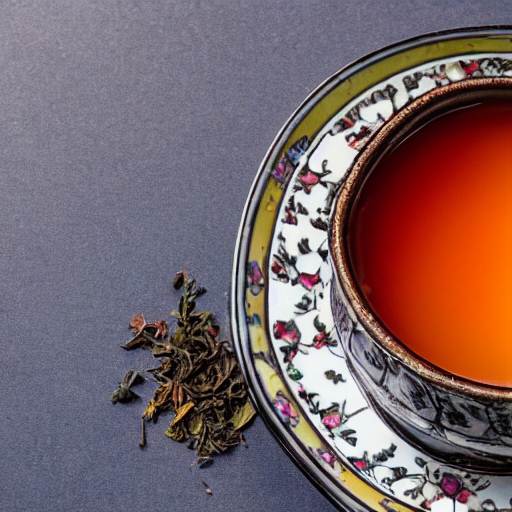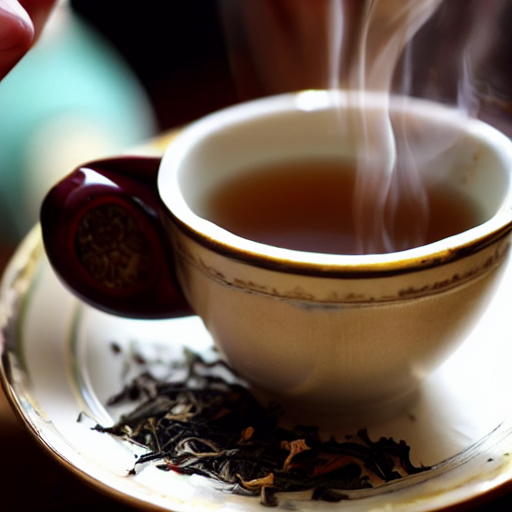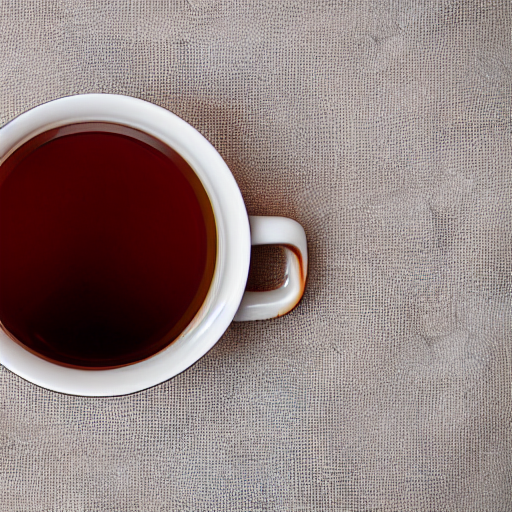Tea is the most popular and most economical drink in the world after water. In fact, two-thirds of the world’s population consume tea. It is prepared by pouring hot water on cured leaves of the Camellia sinensis plant. People from all over the world have been consuming tea for more than thousands of years, however, its domestication, origin, and breeding history are still unclear. China and India are the two largest producers of tea and studies suggest that the tea plant has three distinct lineages - China-type tea, Chinese Assam-type tea, and Indian Assam-type tea. All of these types were independently domesticated in China and India, respectively.
Although people have been drinking teas for centuries now, studies determining teas’ chemical compositions have only been conducted in recent decades. The chemical composition of teas varies depending on the type of tea. Some teas of the same type may also have different compositions because of factors like the place they were grown, production technology, and storage conditions. The major active compounds found in tea are polyphenols. Other than its benefits, polyphenols are great indicators of tea quality. Teas also have bioactive compounds like catechins, theaflavins, thearubigins, and methylxanthine, although true green teas do not contain theaflavins and thearubigins.
Health Impact of Drinking Tea

One of the primary reasons why many people drink tea is for its health benefits. Drinking tea has many health benefits when consumed in moderation. It can help in improving people’s divergent thinking creativity. In other words, their creativity performance when taking spatial cognitive and semantic imagining tasks becomes higher when drinking tea. A healthy heart is another benefit of sipping some tea. The tea compounds like polyphenols, flavonoids, and catechins are correlated with a lower risk of heart diseases. These tea compounds help in reducing inflammation and growth of soft muscle tissue which results in high blood pressure and hardened arteries. Researchers also found that green tea catechins can prevent congestive heart failure and hypertension by reducing oxidative stress. These catechins are also helpful in reducing the clumping of platelets which reduces the risk of blood clots in arteries and heart attack. Another health benefit of drinking tea comes with its anti-inflammatory property. The study of Yan et al. showed that “tea polyphenols can protect cells from oxidative damage by regulating certain cell signaling pathways.” It was also verified in the same study that teas are packed with antioxidants. Antioxidants help remove free radicals and reduce cell damage. The flavonoids found in green and black teas are extremely effective radical scavengers. Teas aid in increasing the antioxidant potentials in the blood which will lead to reduced oxidative damage to macromolecules like DNA and lipids. Another study presented that tea consumption immensely helps people in preventing the risk of having a stroke, dementia, and poststroke dementia. Teas are also effective boosters of the immune system. In fact, a recent study showed that teas are a great source of nutrition that helps COVID-19 patients. Several studies have also shown that ginger tea, chamomile tea, and hibiscus tea are especially beneficial to a person’s immunity against various diseases and health issues. In addition, green tea and kombucha tea are also good choices for your immune system while mint-ginger tea is especially beneficial to the health of the elderly.
At the other end of the spectrum, there are also risks associated with drinking tea. A study revealed that the quality of soil affects the quality of tea leaves. A province in China experienced tea garden soil pollution that resulted in adult tea leaves containing enough heavy metals that can be detrimental to one’s health. A registered dietitian named Ansley Hill has also written that too much consumption of tea can lead to increased anxiety, stress, and restlessness because of its caffeine content. It can also have side effects like dizziness, nausea, headaches, and heartburn. Pregnancy complications can also occur due to high levels of caffeine that can be found in tea.
Trends and Statistics in the Tea Industry

The popularity of tea beverages has resulted in interesting statistics about the world’s consumption of tea. According to Statista, 4,936.9 million kilograms of tea was consumed by people around the world in the year 2012. This number increased every year except in 2020. In 2019, people consumed about 6,365.3 million kilograms while there were only 6,300.8 million kilograms in the year 2020. Last 2021, it reached 6,628.4 million kilograms and it has been projected to increase to 7,442.8 million kilograms in the year 2025.
The top-selling ready-to-drink tea brand in the United States last 2021 is Lipton Pure Leaf which earned 900 million US dollars. It was followed by Arizona and Gold Peak with 597 million US dollars and 466 million US dollars of earnings in the same year, respectively. On the other hand, the top-selling brands of loose-leaf and bagged teas in 2020 are Lipton, Bigelow, private label, and Twinnings of London.
More statistics showed that consumption of tea in the United States remains strong in most tea categories even though its imports were weaker in 2020. Drinking tea is also perceived by Gen Z’s and Millenials as “calming, destressing, centering, and relaxing” which also helped them deal with the pandemic. Plus, the health benefits of Camellia sinensis are key factors behind the increased tea consumption throughout COVID.
Experts’ Perfect Cup of Tea

While many people enjoy drinking their tea in their own way, many technical factors can affect the taste of tea. Here are some rules that you need to follow in making the perfect cup of tea.
First, use fresh cold water instead of reheating hot water. Hot tap water and reheated water can produce a flat taste because it has lower oxygen content. Second, preheat your teacup. Using a cold cup can affect the temperature of your tea so it is necessary to preheat your cup. Third, you need to make sure to use the correct amount of water when brewing. The recommended amount of water per tea bag or per teaspoon of loose tea is 8 ounces. However, if your tea is not as strong as you want it to be, you can either put less water or put more loose tea. You should also be aware of the amount of tea you put in your cup if you are using loose tea. It is best to leave some room for the expansion of the loose tea. Lastly, brew it at the correct time and temperature. Most types of tea require three to five minutes of brewing time. To make sure, check the package for instructions. The recommended temperature for most teas is below the boiling point. For example, green teas taste best if brewed at about 160 to 180 degrees Fahrenheit because they are more delicate compared to black teas.
Final Thoughts
Drinking tea is undoubtedly beneficial to your health. It helps you lose excess weight, it contains many antioxidants, and it can boost your immune system. Keep in mindt that the things you add to your tea like sugar and cream could make it unhealthy. Also, too much consumption of tea can produce negative side effects. When consumed moderately, you too can enjoy the health benefits of drinking tea!
Frequently Asked Questions (FAQs)
Is green tea good for you?
Green tea is rich in antioxidants and has many health benefits. It can help you lose weight, lower your risk of heart disease, and improve your mental health. Green tea can be drank warm or as an iced tea. Everyone's preference is different, but overall, green tea is a great choice for a healthy beverage.
What are the health benefits of drinking herbal teas?
There are many different types of herbal teas, each with their own unique benefits. Some common benefits of drinking herbal teas include improved digestion, relief from inflammation, reduced stress and anxiety levels, improved circulation, and boosted immunity. Digestion is one of the most commonly cited reasons for drinking herbal tea. Various herbs have been shown to aid in digestion, including ginger, fennel, peppermint, and chamomile. These herbs can help to reduce bloating and gas, aids in the breakdown of fats, and promote regularity.
Herbal teas can also be helpful for those suffering from inflammation. Ginger tea has long been used as a natural treatment for nausea and upset stomachs. Chamomile tea has also been shown to be anti-inflammatory, and can be helpful in reducing swelling from injuries. Peppermint tea is a cooling herb that can help tooth irritated skin. Herbal teas are often drunk for their calming effect. chamomile, lavender, and lemon balm are all common herbs used in teas for their calming effect. These herbs can help to reduce stress and anxiety levels, and promote a sense of relaxation.
Does turmeric tea have immune function capabilities?
There is actually some science to back up the claims that drinking turmeric tea can help improve your immune function. A review of the literature shows that drinking turmeric tea can help reduce inflammation and improve immunity by modulating the activity of several important immune cells, including T cells, B cells, and natural killer cells.
There is also evidence that the curcuminoids in turmeric can help increase antioxidant capacity and protect against oxidative stress-induced cell damage. Curcuminoids are a family of compounds found in turmeric that are responsible for its yellow color. These compounds have been shown to possess potent anti-inflammatory and antioxidant properties.

